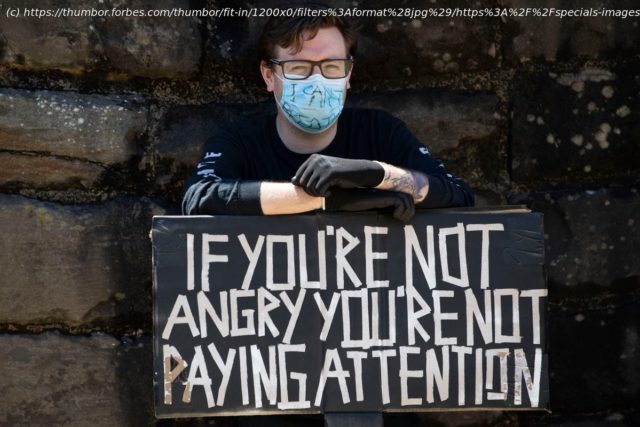The first six months of 2020 has been rocked by Covid-19 and protests following the killing of George Floyd, both global movements have catalyzed further action. But what are the consequences of leaders and organisations staying silent?
The first half of 2020 will be remembered for many things, Covid-19, lockdowns, global economic recession, the acceleration of technology in the workplace, working from home, schooling from home, the scramble for toilet rolls (at least in the UK), hand sanitizer, masks. It will also be remembered for the death of one man, George Floyd whose killing prompted widespread protests and a global movement surrounding Black Lives Matter, the statues that came down and memorials erected, the conversations that dominated governments, workplaces, universities, and schools.
2020 will also be remembered for the conversations that did not happen, which may sound surprising among the current furor, but if you take a step back and consider the organizations which you work in or engage with, how many have of them have maintained their silence over issues of racial prejudice? Is silence really merely inaction or is it an acquiescence to injustice?
If your organization has not committed to the race discussion – how is your identity and comfort at work impacted? As a result of Covid-19, organizations have experienced an unprecedented upheaval. The cumulative impact creates an intense sense of stress due to uncertainty leading to an important question – what is the current state of our psychological relationship with work? Working relationships are shaped by formal contracts, legally binding documents protecting rights and remuneration on both sides, which also contain an unwritten clauses for the obligations owed by virtue of this contract. The unwritten clauses in a psychological contract are nuanced and complicated because they are not formally set out but rather assumed to encompass mutual benefits, rights and responsibilities between an employer and employee, based on principles of trust, respect, compassion, and objectivity. Each of these areas is highly subjective, difficult to achieve, and equally challenging to maintain, particularly when the relationship’s foundation may not be stable and robust. Organizations have to invest substantial resources in defining their values to create a framework for staff, customers, and other stakeholders to make their psychological contract more explicit.
What happens when leaders interpret the organization’s values and make decisions that contradict their stakeholders’ views or merely pay lip service to their cited values? In the case of Black Lives Matter, it is improbable that any organization will oppose the movement.






